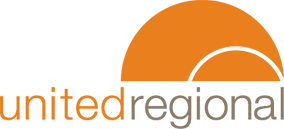Addressing Community Needs
United Regional understands the relationship between quality of life and our community’s health. Because of this, we take a holistic approach to evaluate our patient’s needs. Issues such as food insecurity, housing instability, transportation needs, exposure to abuse or neglect, and a lack of access to water, electricity, and other basic needs must be addressed to be successful. These categories of issues we face are called Social Determinants of Health (SDOH).
SDOH screening is a vital tool for finding social factors that impact health, enabling healthcare providers to deliver more personalized and effective care. By addressing these determinants, we can improve patient outcomes, enhance engagement, and promote a more equitable healthcare system.
United Regional Health Care System screens all patients 18 years and older for the following needs:
Food Insecurity
Food insecurity is defined as limited or uncertain access to adequate quality and quantity of food at the household level.
Housing Instability
Housing instability encompasses multiple conditions ranging from the inability to pay rent or mortgage, frequent changes in residence including temporary stays with friends and relatives, living in crowded conditions, and actual lack of sheltered housing in which an individual does not have a personal residence.
Transportation Needs
Unmet transportation needs include limitations that impede transportation to destinations required for all aspects of daily living.
Utility Difficulties
Inconsistent availability of electricity, water, oil, and gas services is directly associated with housing instability and food insecurity.
Interpersonal Safety
Assessment for interpersonal safety includes screening for exposure to intimate partner violence, child abuse, and elder abuse.
Learn more about Social Determinants of Health at https://health.gov/healthypeople/objectives-and-data/social-determinants-health.
Community Health Needs Assessment
In order to address SDOH, it is important to understand the needs of our community. Every three years, United Regional completes a Community Health Needs Assessment (CHNA). The results of the CHNA guide us to identify existing and needed programs for our community.
In response to the CHNA, United Regional offers access to:
- Free health education for heart failure, diabetes, respiratory diseases, and sepsis, as well as our Healthy Lifestyle Program.
- Collaboration with the community in an ever growing network of regional nursing homes, home health agencies, hospice, hospitals, local non-profits and community-based organizations.
- Access to continuous care with Transition Clinic services.
Find Help
Find Help can connect you with local resources to enhance quality of life and promote healthy behaviors. Here, you can search for programs to assist with food, housing, transportation, safety, utilities, mental health, education, and other social services provided directly by community-based organizations.
If you answer YES to any of these questions, help is available.
- Have you recently run out of food before you had money to buy more?
- Is it hard for you to pay for basics like food, housing, utilities or medical care?
- Is a lack of transportation keeping you from going places you want to go? (e.g., grocery stores, pharmacy, doctor’s office, work, etc.)
- Do you feel lonely or separated from those around you?
- Are you or someone you know struggling with addiction?
- Are you having a hard time finding childcare, after-school care or help with online learning?
- Are you worried about your housing situation (e.g., back rent, eviction, relocation)?
Find Help puede conectarte con recursos locales que mejoran tu calidad de vida y promueven hábitos saludables. Aquí puedes buscar información sobre programas de ayuda con alimentación, vivienda, salud mental, educación y otros servicios sociales ofrecidos directamente por organizaciones comunitarias.
Si responde SÍ a cualquiera de estas preguntas, hay ayuda disponible
- ¿Se ha quedado recientemente sin comida antes de tener dinero para comprar más?
- ¿Le resulta difícil pagar artículos básicos como comida, vivienda, servicios públicos o atención médica?
- ¿La falta de transporte le impide ir a lugares a los que desea ir (por ejemplo, supermercados, farmacias, consultorio médico, trabajo, etc.)?
- ¿Se siente solo o separado de quienes le rodean?
- ¿Usted o alguien que conoce tiene problemas de adicción?
- ¿Tiene dificultades para encontrar cuidado infantil, cuidado extraescolar o ayuda con el aprendizaje en línea?
- ¿Le preocupa su situación de vivienda (por ejemplo, alquiler atrasado, desalojo, reubicación)?
- Nuestra comunidad cuenta con varias organizaciones benéficas locales que existen para mejorar la vida de nuestros amigos, familiares y vecinos. Puede buscar en un directorio de esas organizaciones y ofertas a continuación. Es GRATIS y anónimo.
QUESTIONS? For more information, please contact:
Darcy Claer at [email protected] or Emily Payne at [email protected].
